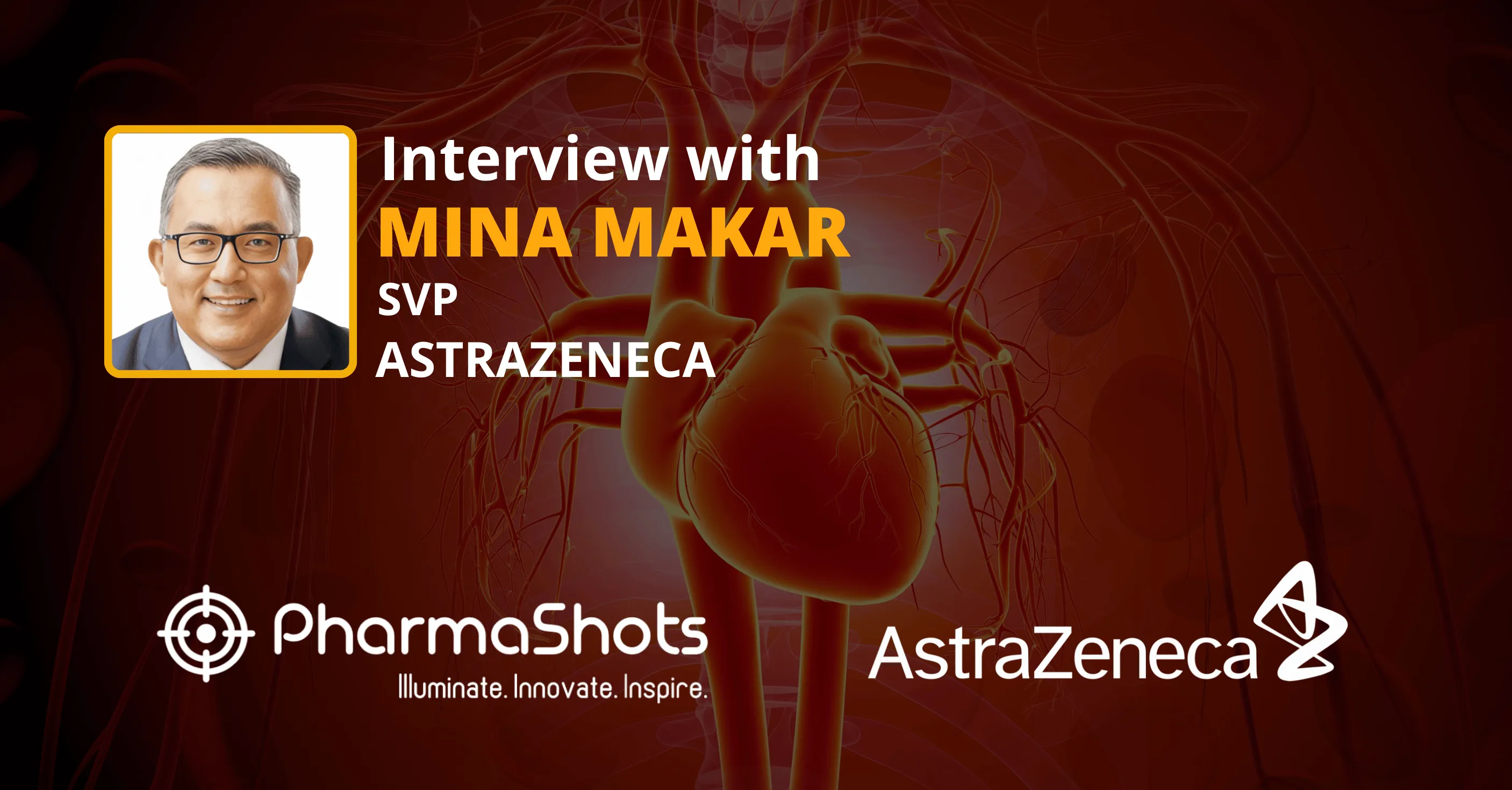
Unlocking Approval: Moitreyee Chatterjee-Kishore from Astellas & Kohei Shitara in Conversation with PharmaShots
Shots:
-
East Asia and East Europe report significant incidences of Gastric Cancer. In 2022, Japan registered around 44,000 mortalities due to Gastric Cancer
-
VYLOY, an anti-claudin 18.2 (CLDN18.2) monoclonal antibody, received Japan’s approval in combination with chemotherapy for patients with HER2 -ve, CLDN18.2+ve, unresectable, advanced, or recurrent gastric cancer
-
Today, at PharmaShots we have Moitreyee Chatterjee-Kishore from Astellas and Kohei Shitara from National Cancer Center Hospital shedding light on VYLOY
Saurabh: What challenges did Astellas face during the development process of VYLOY and how did you overcome those challenges?
Moitreyee: The MHLW approval of VYLOY™ (zolbetuximab), based on results from the Phase 3 SPOTLIGHT and GLOW clinical trials, is the culmination of years of research and development focused on changing the course of advanced gastric cancer treatment by targeting a novel predictive biomarker called CLDN18.2.1,2
At Astellas, we recognized the need for more targeted treatment options for this hard-to-treat disease. Our studies had established CLDN18.2 as a novel predictive biomarker and a potential target in locally advanced unresectable or metastatic gastric adenocarcinoma, which gave us the confidence in pursuing clinical development of zolbetuximab.1,2
We also understood that the bar for demonstrating clinical safety and efficacy of a new investigational therapy targeting this novel target would be high. Our global clinical development program included two robust Phase 3 trials that were recently the basis of VYLOY approval for eligible patients in Japan.
There are many challenges inherent in seeking approval of a novel targeted therapy globally, and I am proud of the tireless efforts of my colleagues at Astellas to complete 13 worldwide regulatory submissions for zolbetuximab to date. In the U.S., following the FDA’s issuance of a complete response letter (CRL), Astellas continues to work closely to address the agency’s concerns regarding the third-party manufacturing facility deficiencies.
-
The FDA has not raised any concerns related to our clinical data, including efficacy or safety, and is not requesting additional clinical studies to support the BLA approval.
Saurabh: What steps will Astellas take to ensure accessibility of VYLOY to patients in need, particularly in regions with high incidence of gastric cancer?
Moitreyee: Gastric cancer is the third deadliest cancer in Japan, leading to nearly 44,000 deaths per year, despite significant strides to reduce the impact of this cancer.3 The approval of VYLOY demonstrates critical momentum in addressing the unmet needs of patients with CLDN18.2 positive gastric cancer.
Astellas’ aim is to make our treatments available to patients who may benefit. We plan to work closely with local and national governments, healthcare providers, non-governmental organization (NGOs), private payers, patient groups, and others to help ensure access. We are working with multiple manufacturers to ensure adequate local supply in Japan. Additionally, we will invest in our VYLOY program to educate appropriate stakeholders, including healthcare providers, about the approval of VYLOY and patients who may be eligible.
Saurabh: Can you discuss the regulatory status of VYLOY outside Japan?
Moitreyee: The approval of VYLOY in Japan is an important advancement for a significant subset of gastric cancer patients who face this disease and an important new treatment option for those on the frontlines of treatment decision-making.i,ii
The European Medicines Agency accepted the Marketing Authorization Application for zolbetuximab, and the Center for Drug Evaluation of China’s National Medical Products Administration accepted the Biologics License Application for zolbetuximab in July 2023. Evaluations are currently ongoing in the EU, China, Korea, Brazil, Switzerland, Australia, Singapore, Canada, the U.K., Taiwan and Thailand, and will be submitted in several other countries during 2024.
While we cannot speculate on the actions of regulatory health authorities, additional updates will be provided at the appropriate time.
Saurabh: ‘Gastric Cancer is the fifth deadliest cancer in the world’. The approval of VYLOY by the MHLW is not just a feather in your cap but a game changer in the Pharmaceutical Industry. What makes VYLOY a groundbreaking treatment for gastric cancer patients?
Kohei: VYLOY's approval by the MHLW marks a significant advancement in the treatment of gastric cancer, primarily because it is the first treatment that targets the claudin 18.2 (CLDN18.2) protein, which is highly expressed in around 40% of gastric and gastroesophageal junction cancers. This focused approach embodies the principles of personalized medicine, ensuring that only patients most likely to benefit from the treatment receive it.
Saurabh: Can you explain in brief the results of Phase-3 SPOTLIGHT and GLOW clinical trials that led to the approval of VYLOY?
Kohei: The Phase 3 SPOTLIGHT and GLOW trials provided strong evidence for VYLOY's efficacy. In the global SPOTLIGHT trial, which involved patients with advanced CLDN18.2-positive gastric/gastroesophageal junction (GEJ) cancer, VYLOY combined with standard chemotherapy (FOLFOX) significantly prolonged both progression-free (PFS) and overall survival (OS) compared to chemotherapy alone. Similarly, the GLOW trial also showed that adding VYLOY to the CAPOX chemotherapy regimen resulted in meaningful improvements in both PFS and OS. These outcomes demonstrated VYLOY's potential to substantially benefit patients which led to its regulatory approval.
Saurabh: Can you elaborate on the mechanism of action of VYLOY and how it specifically targets CLDN18.2 positive tumors?
Kohei: As a monoclonal antibody for CLDN18.2, VYLOY activates the immune system leading to the destruction of cancer cells through mechanisms such as antibody-dependent cellular cytotoxicity and complement-dependent cytotoxicity. This targeted approach allows for the selective eradication of tumor cells, inhibiting tumor growth and improving patient survival. Meanwhile, nausea and vomiting as on target toxicities are commonly observed at early cycles of treatment, but these adverse events (AEs) are usually well managed by use of antiemetics and infusion modification.
Saurabh: Question 4: How is patient eligibility for VYLOY determined, and what role does the VENTANA CLDN18 (43-14A) RxDx Assay play?
Kohei: Eligibility for VYLOY treatment is determined primarily through the detection of CLDN8.2 expression in tumor cells using the VENTANA CLDN18 (43-14A) RxDx Assay. This companion diagnostic tool uses immunohistochemistry to identify patients whose tumors express CLDN18.2, ensuring that the treatment is given only to those likely to benefit from it. CLDN18.2 positivity is defined as tumors where at least ≥75% of cells show moderate to strong staining. By confirming the presence of this protein, the assay not only aids in selecting appropriate candidates for VYLOY treatment, but also plays a crucial role in advancing personalized medicine in gastric cancer care.
Image Source: Canva
About the Author:

Moitreyee Chatterjee-Kishore
Dr. Moitreyee Chatterjee-Kishore is the Head of Development, Immuno-Oncology and Cancer Cell Therapy at Astellas. A seasoned pharmaceutical business leader and drug developer with more than 20 years of pharmaceutical experience, she previously was the
Head of Research and Early Development R&D Strategy and Planning at Bristol Myers Squibb and has also held important development and early pipeline leadership roles at Janssen, AbbVie and Wyeth and served as a research scientist at the research institutes such as the Cleveland Clinic Foundation and Friedrich Miescher Institut. She has led programs across a breadth of modalities, platforms and therapy areas from the discovery through late phase clinical development, but her primary experience is in oncology and immune-oncology. Dr. Moitreyee Chatterjee-Kishore holds a Ph.D. in Medical Genetics from the Sanjay Gandhi Post Graduate Institute of Medical Sciences and a MBA from Purdue University Daniels School of Business.
Kohei Shitara

Kohei Shitara, M.D., is the Head, Department of Gastrointestinal Oncology, the National Cancer Center Hospital East in Kashiwa, Japan. Dr. Shitara is the primary Investigator for the SPOTLIGHT Trial. Main research interests include development of new anti-cancer agents, optimal chemotherapy regimen for gastrointestinal cancer, and translational research.
Related Post: Onchilles Pharma at AACR 2024: Lev Becker in a Stimulating Conversation with PharmaShots
Tags

Saurabh is a Senior Content Writer at PharmaShots. He is a voracious reader and follows the recent trends and innovations of life science companies diligently. His work at PharmaShots involves writing articles, editing content, and proofreading drafts. He has a knack for writing content that covers the Biotech, MedTech, Pharmaceutical, and Healthcare sectors.














